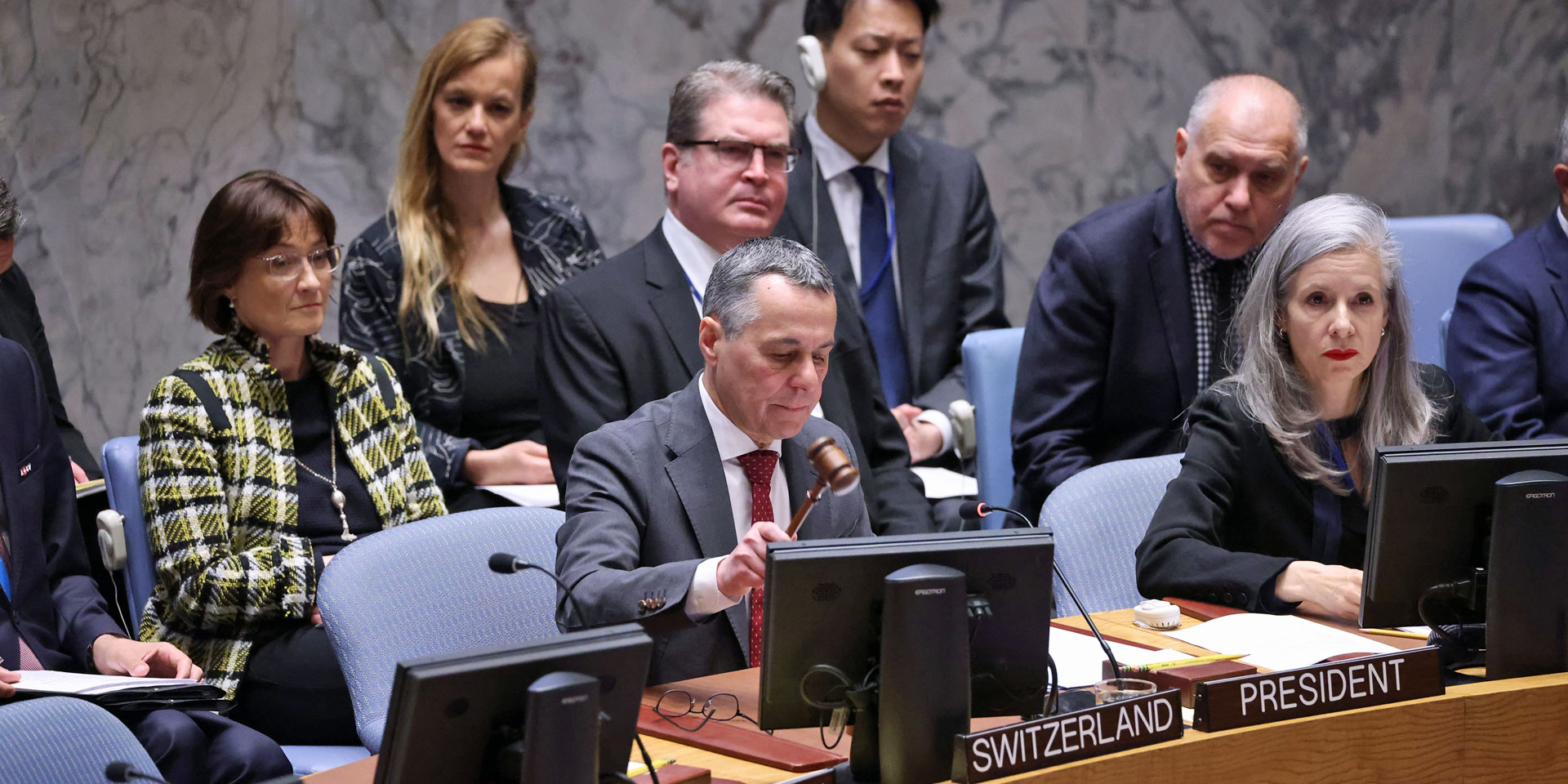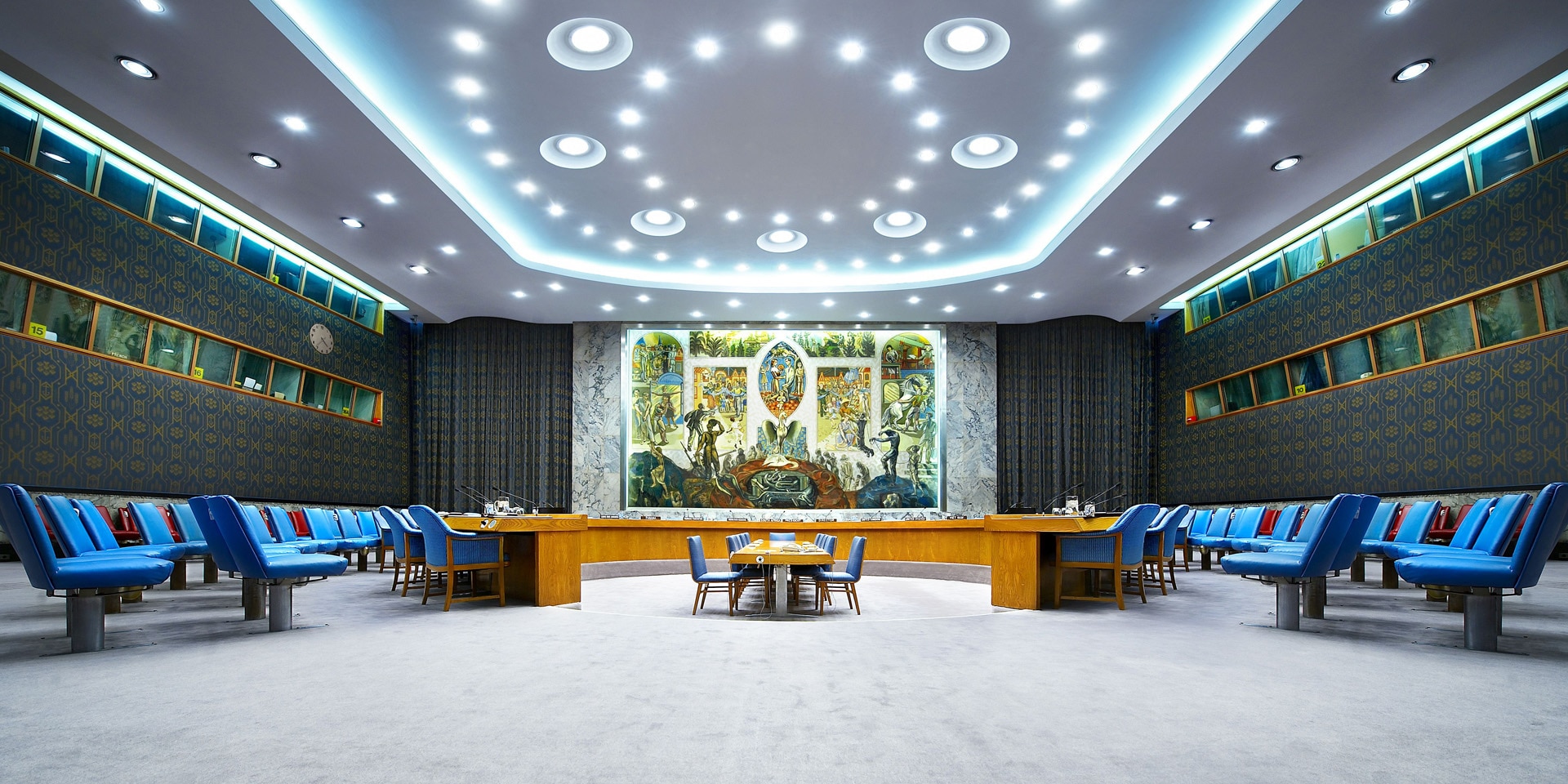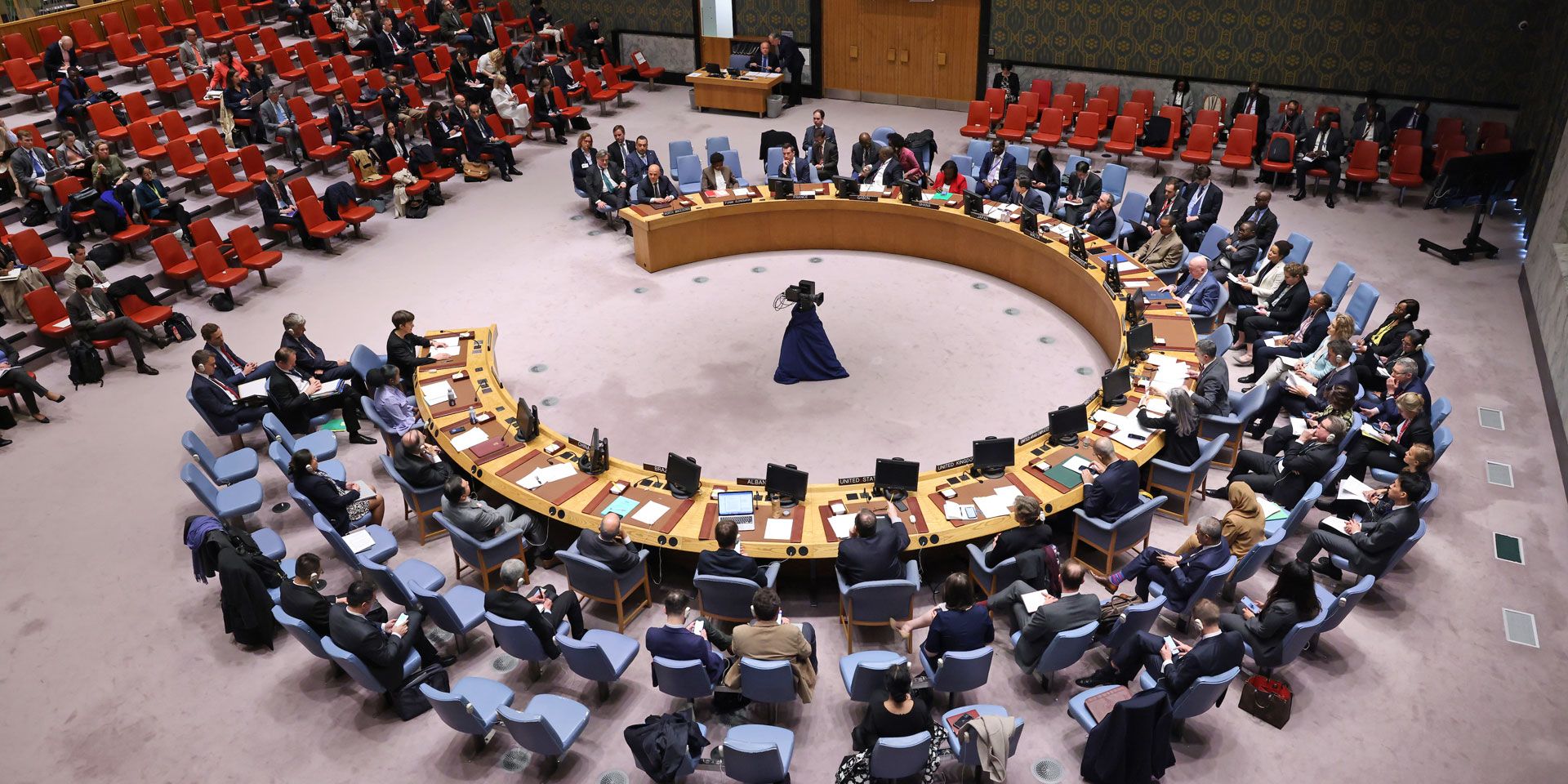How the UN Security Council gains effectiveness in Switzerland
Enhancing the effectiveness of the UN Security Council. This is one of the four priorities of Switzerlands 2023-2024 Council membership. It is the sixth time, the current and newly elected non-permanent members met. This year, the exchange took place in Switzerland. The focus was on knowledge transfer, networking and continuity in the Council's work. The aim is to promote the effectiveness, transparency and impact of the Security Council.
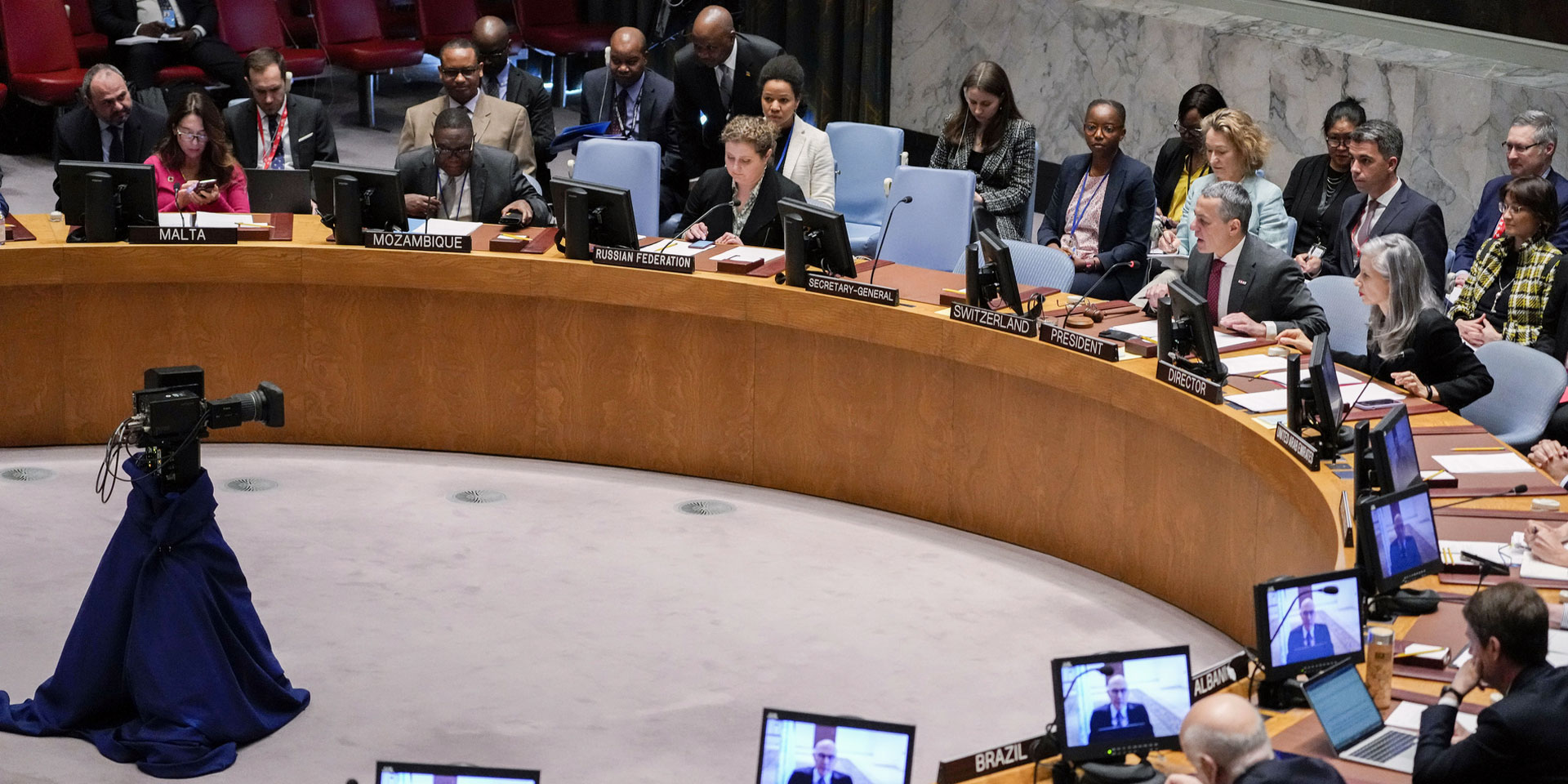
Switzerland is committed to effective working processes and the UN Security Council's ability to act. © Keystone
The world is confronted with an increasing number of crises and conflicts. This requires the UN Security Council to act more quickly and effective. The Federal Council is aware of this challenge and defined "enhancing effectiveness" as one of the four thematic priorities for Switzerlands council membership in 2023-2024. Against this backdrop, Switzerland is committed to strengthening the linkages between the work of the UN in Geneva and to improving working processes and the Security Council's capacity to act. At Switzerland's initiative, the current ten non-permanent members (E10) of the Council and the five newly elected members for the years 2024-2025 met in Geneva and in Glion near Montreux between 27 and 29 August.
Composition of the UN Security Council
The UN Security Council consists of five permanent members, China, France, Russia, the USA and the United Kingdom, and ten non-permanent members, each elected to the Council for a two-year term by the UN General Assembly. In 2022, together with Switzerland, Malta, Japan, Ecuador and Mozambique were elected as non-permanent members for the years 2023-2024. From January 2024, Algeria, Guyana, South Korea, Sierra Leone and Slovenia will join, replacing Albania, Brazil, the United Arab Emirates, Ghana and Gabon.
The E10 are central to ensuring the Security Council's ability to act and carry out its mandate to maintain international peace and security. This is because the votes of the E10 are also necessary for a decision; a resolution requires nine affirmative votes. This year, marks the sixth time the dialogue took place and Switzerland acted as host. The exchange provides an opportunity to build relationships and discuss common challenges and potential solutions in the Security Council. This engagement also promotes the institutional memory of the E10 and thus the continuity of the Council's work. Furthermore it strengthens the capacity of elected members to influence the Council's agenda, working methods and decision-making processes. This ultimately benefits the Security Council, the UN and multilateralism. After all, against the backdrop of countless conflicts and crises around the world, an efficient and capable Security Council is more important than ever.
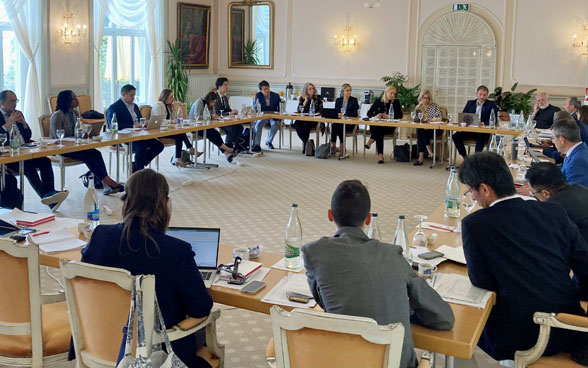
Opportunities, challenges and cooperation at the centre of the dialogue
In various sessions, central aspects for the future work of the Security Council were discussed. Among other things, the participants explored the questions of which practices of cooperation have proven successful, which challenges, opportunities and issues the E10 are confronted with and, above all, how the Security Council can better end and prevent conflicts. One of the dialogue sessions was therefore dedicated to the New Agenda for Peace, which was presented by UN Secretary-General Guterres in July. It provided an opportunity to discuss science diplomacy, disarmament, human rights and humanitarian affairs with experts from International Geneva.
The feedback received show that the meeting was appreciated by the participants. "This event provided an excellent and enjoyable opportunity to not only exchange views as the E10-I5 but also to strengthen human connection, including in an informal way," said one participant. Another added: "I’m truly inspired by everyone’s deliberations to strengthen E10 unity."
So how did the Security Council concretely benefit from this year's meeting? "The dialogue has shown that the exchange and cooperation among the E10 is valuable. The E10 do not always agree on certain agenda items in the Security Council. However, joint initiatives have led to important resolutions and decisions in the Council in the past. We want to continue this. It was also useful to get the newly elected members on board in June and to make it easier for them to get started in January," explains Esther Neuhaus, Head of the Security Council Section of the FDFA.

